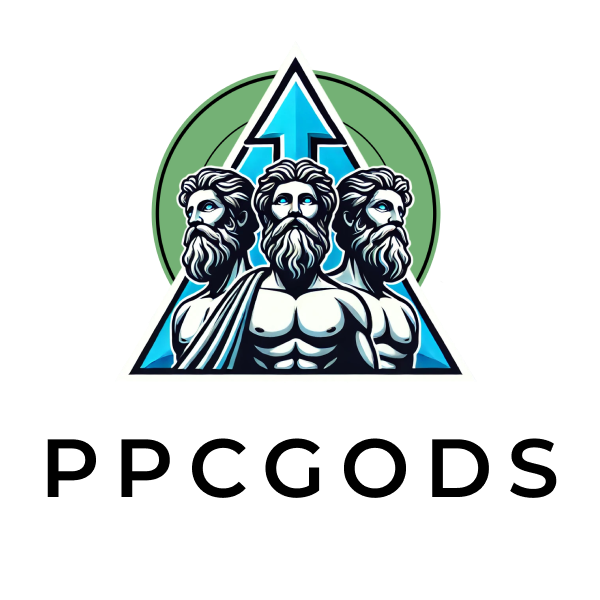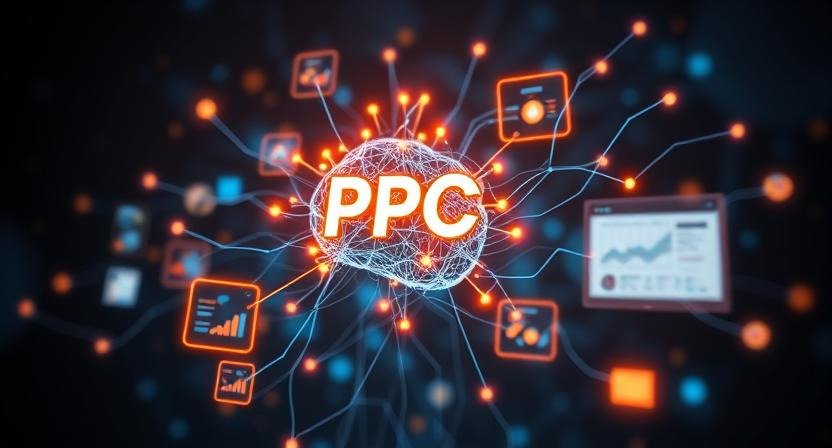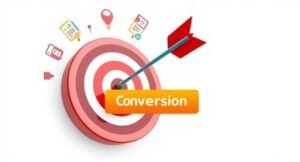Introduction
Pay-per-click (PPC) advertising is a major part of digital marketing. It helps businesses reach the right audience and drive traffic to their websites. But with the rise of artificial intelligence (AI), PPC campaigns are evolving faster than ever.
AI in PPC is changing how marketers create, manage, and optimize their ads. From automating bids to predicting trends, AI makes advertising smarter and more effective. But what does this mean for marketers? How can businesses use AI to improve their PPC results?
In this article, we’ll explore how AI is shaping PPC campaigns, the benefits it brings, and the challenges marketers need to be aware of.
1. How AI is Changing PPC Advertising
AI is transforming PPC advertising by making processes faster and more efficient. Here are some key ways AI is changing the game:
1.1 Automated Bidding
AI-powered platforms like Google Ads and Microsoft Advertising use machine learning to adjust bids in real-time. This ensures ads reach the right people at the right time without overspending.
1.2 Smart Audience Targeting
AI analyzes user behavior, search history, and demographics to show ads to the most relevant audience. This increases the chances of getting clicks from people who are actually interested in your product or service.
1.3 Ad Copy Optimization
AI tools like ChatGPT can help marketers write engaging ad copies that attract more clicks. They analyze past performance and suggest headlines and descriptions that are likely to perform well.
1.4 Performance Analysis and Insights
AI doesn’t just run ads—it also provides insights into what’s working and what’s not. By analyzing huge amounts of data, AI can help marketers make better decisions and improve their campaigns.
2. The Benefits of Using AI in PPC
Using AI in PPC campaigns comes with several advantages. Let’s take a look at some of the biggest benefits:
2.1 Better Efficiency
AI automates many time-consuming tasks, such as bid adjustments and keyword research. This frees up time for marketers to focus on strategy and creativity.
2.2 Higher ROI
Since AI optimizes bids and targets the right audience, businesses often see better results with lower ad spend. AI helps avoid wasted clicks and improves conversion rates.
2.3 Faster Data Processing
AI can analyze millions of data points in seconds, something that would take humans hours or even days. This speed helps marketers react quickly to trends and market changes.
2.4 Improved Personalization
AI can deliver highly personalized ads based on user behavior. For example, if a user searches for running shoes, AI can show them ads for the exact type of shoes they are interested in.
2.5 Better Fraud Detection
AI helps detect and prevent click fraud, which is when bots or competitors click on your ads to waste your budget. AI-powered fraud detection tools can identify suspicious activity and block fake clicks.
3. Challenges of AI in PPC
While AI brings many benefits, it also comes with some challenges that marketers need to be aware of.
3.1 Lack of Human Creativity
AI is great at analyzing data, but it still struggles with creativity. While AI can suggest ad copy, human marketers are still needed to craft compelling and emotionally engaging messages.
3.2 Dependence on Data Quality
AI relies on data to make decisions. If the data is inaccurate or incomplete, AI can make poor recommendations that hurt campaign performance.
3.3 Cost of AI Tools
Many advanced AI-powered PPC tools come with a high price tag. Small businesses may find it challenging to afford the best AI tools available.
3.4 Privacy Concerns
AI uses a lot of user data to improve targeting, which raises concerns about privacy. Marketers need to ensure they follow data protection regulations like GDPR and CCPA.
4. How to Use AI in Your PPC Campaigns
Now that we know the benefits and challenges, let’s look at some practical ways to use AI in your PPC campaigns.
4.1 Use Smart Bidding Strategies
Platforms like Google Ads offer AI-powered bidding options like:
- Target CPA (Cost Per Acquisition) – AI sets bids to get as many conversions as possible at a target cost.
- Target ROAS (Return on Ad Spend) – AI adjusts bids to maximize revenue based on past performance.
- Maximize Conversions – AI automatically sets bids to get the highest number of conversions.
4.2 Leverage AI-Powered Ad Copy Tools
AI tools like Copy.ai and Jasper can help generate ad headlines and descriptions based on high-performing trends.
4.3 Automate A/B Testing
AI can run A/B tests and quickly determine which ad variations perform best, helping marketers optimize faster.
4.4 Use Predictive Analytics
AI can predict future trends based on past data. Marketers can use these insights to adjust their strategies before competitors do.
4.5 Implement AI-Powered Chatbots
AI chatbots can engage with potential customers in real-time, answering questions and even helping with conversions.
5. The Future of AI in PPC Advertising
AI is constantly evolving, and its role in PPC advertising will only grow. Here are some trends to watch:
5.1 Voice Search Optimization
As more people use voice assistants like Siri and Alexa, AI will help optimize PPC ads for voice search queries.
5.2 AI-Generated Visual Ads
AI is already being used to create ad visuals and videos. In the future, AI could generate personalized ad designs for different audiences.
5.3 Advanced AI Chatbots
Chatbots will become even smarter, helping businesses turn ad clicks into real sales by engaging users instantly.
5.4 AI-Driven Ad Platforms
Google, Facebook, and other ad platforms will continue to integrate AI to make ad management even more automated and efficient.
Conclusion
AI in PPC is revolutionizing digital advertising. From automated bidding to smart targeting and ad copy generation, AI is making campaigns more efficient and effective. However, it’s important for marketers to balance AI automation with human creativity to get the best results.
By understanding AI’s benefits and challenges, businesses can use AI-powered tools to stay ahead of the competition and maximize their ad performance.
As AI continues to evolve, staying updated with the latest trends will be key to running successful PPC campaigns in the future.
Frequently Asked Questions (FAQs)
1. What is AI in PPC?
AI in PPC refers to the use of artificial intelligence and machine learning to automate and optimize pay-per-click advertising campaigns.
2. How does AI improve PPC campaigns?
AI improves PPC by automating bidding, enhancing audience targeting, optimizing ad copy, and providing valuable insights for better performance.
3. Can AI completely replace human marketers in PPC?
No, AI can automate tasks and improve efficiency, but human creativity and strategy are still essential for a successful campaign.
4. Are AI-powered PPC tools expensive?
Some advanced AI tools can be costly, but many platforms like Google Ads offer free AI-driven features for advertisers.
5. Is AI in PPC suitable for small businesses?
Yes, small businesses can benefit from AI-powered tools to optimize their ad spend and improve campaign performance without needing a large team.
6. How can I start using AI in my PPC campaigns?
You can start by using AI-driven bidding strategies, ad copy generators, and analytics tools to optimize your PPC campaigns effectively.




